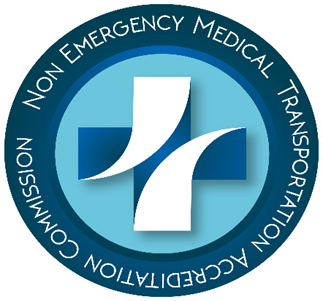COVID VACCINE BILLING – WHAT EMS BILLERS MUST KNOW
In recent weeks, the CDC and CMS have published numerous documents about COVID vaccine distribution and administration. With the Federal Register publication of the Interim Final Rule on November 6, 2020 and additional documents from CMS, the path was set for EMS providers to administer COVID vaccines.
Currently state health departments and EMS leaders are working to determine how EMS will be employed in the COVID vaccine distribution plans. Some states’ plans are further developed than others. While those efforts march forward, billers need to think about and act on three issues – 1) provider status; 2) how and what to bill; and 3) operationalizing the billing process. This article outlines these three topics and provides information billing departments need to prepare for vaccine billing.
MOST IMPORTANT! Check Medicare, the CDC, your state, and all informational links often. The topic of vaccines is a fast-moving train; do not miss a critical step along the way.
1. Provider Status
Vaccine billing differs from ambulance billing. Ambulance does Type 41 billing. Vaccine administration is done as Type 73 billing. Type 73 is a “mass immunizer provider.” Therefore, if an EMS organization is going to bill for vaccine administration, the organization must apply to be a Type 73 biller.
From the Interim Final Rule:
“Many providers, professionals, and other suppliers can bill Medicare for the preventive vaccines and vaccine administration they furnish using claims rules similar to those that apply to the other Medicare covered items and services. Additionally, certain entities can enroll under Medicare as mass immunizers to offer and bill Medicare for flu vaccinations, pneumococcal vaccinations, or both to large groups of Medicare beneficiaries under roster billing. A mass immunizer may be enrolled in Medicare as another type of provider or supplier such as a physician, non-physician practitioner, hospital outpatient department, home health agency or skilled nursing facility… (For more information on the enrollment process for mass immunization roster billers, see https://www.cms.gov/Medicare/Provider-Enrollment-and-Certification/Become-a-Medicare-Provider-or-Supplier and/or contact your local Part A/B Medicare Administrative Contractor.)”
Those EMS agencies that provide flu vaccines are already familiar with mass immunizer billing. If your company has not done immunizations, you must work through your MAC to become a mass immunizer so that you may submit ROSTER BILLING. Unlike ambulance billing where the claim form is for one trip at a time, vaccine billing will involve submitting a list of vaccine recipients on one roster. (Providers will not be precluded from submitting a single claim per vaccine; it will be significantly easier to do roster billing.)
Becoming a roster biller does not change your status for billing ambulance services. Vaccine providers will receive temporary status from Medicare as Type 73 billers. The process to enroll is less burdensome than filing the original 855B form for Medicare, but some similar information will be needed.
- Legal name of the organization
- NPI and TIN
- State license number
- Contact information
- Practice location (where vaccine will be distributed to the organization
Providers must contact their individual MAC for information on enrollment. For example, look here for information on Novitas’requirements. The temporary Type 73 provider number granted to the EMS agency will be included on the roster bills submitted to payers for vaccine administration payment.
Most providers who participate in this process will focus on immunizations only. However, it is possible that some providers will also administer monoclonal antibodies. Type 73 provider status will include monoclonal antibody administration. Additional information on roster billing can be found here.
2. How and What to Bill
Every vaccine provider will want to know what they will be paid. Vaccine payment allowances have been established. Preliminary billing codes have been created for claims submission. Furthermore, the critical topic of cost-sharing has been discussed in the Interim Final Rule. Let us review these topics below.
Vaccine payment allowances are:
- $28.39 for a single dose vaccine
- $16.94 for vaccine requiring 2 or more doses, with final dose at $28.39
From the Toolkit on COVID-19 Vaccine: Health Insurance Issuers and Medicare Advantage Plans,
“…In order to account for the additional costs of outreach, patient counseling, and reporting into CDC vaccine tracking systems. Medicare payment rates for COVID-19 vaccine administration will be $28.39 to administer single-dose vaccines. For a COVID-19 vaccine requiring a series of 2 or more doses, the initial dose(s) administration payment rate will be $16.94, and $28.39 for the administration of the final dose in the series. These rates recognize the costs involved in administering the vaccine, including the additional resources involved with required public health reporting, conducting important outreach and patient education, and spending additional time with patients answering any questions they may have about the vaccine. These rates will also be geographically adjusted…”
Each type of vaccine will have its own code by manufacturer and by dose. For example:
- Pfizer-Biontech Covid-19 Vaccine Administration – First Dose – CODE: 0001A – Payment $16.49
- Pfizer-Biontech Covid-19 Vaccine Administration – Second Dose– CODE 0002A – Payment $28.39
- Moderna Covid-19 Vaccine Administration – First Dose– CODE 0011A – Payment $16.94
- Moderna Covid-19 Vaccine Administration – Second Dose– CODE 0012A – Payment $28.39
The approach to monoclonal antibody administration is similar for those providers who will be involved in this process. Antibody administration is done as a Type 73 biller. Codes were established for each drug company manufacturer. Here is an example:
- Eli Lilly Intravenous infusion, bamlanivmab-xxx, included infusion and post administration monitoring – Payment $309.60
- Regeneron Intravenous infusion, casirivimab and imdevimab includes infusion and post administration monitoring – Payment $309.60
Note that while information about codes is available on the CMS website, the effective dates for the use of these codes is still to be determined.
For a list of the currently available COVID-19 Vaccine Codes, click here.
The payment allowance is known. Codes are available for billing. What about co-payments or cost-sharing amounts? COST SHARING / BALANCE BILLING IS A NO-NO. This is pretty much across the board. There will be no cost-share or deductible for Medicare beneficiaries.
For Medicaid, CHIP and Basic Health Plan Beneficiaries, “Under Section 6008 of the Families First Coronavirus Response Act (FFCRA), states’ and territories’ Medicaid programs may receive a temporary 6.2 percentage point increase in the Federal Medical Assistance Percentage (FMAP). The FMAP increase is available through the end of the quarter in which the COVID-19 PHE ends. To receive that increase, section 6008(4) of the FFCRA establishes a condition that a state must cover COVID-19 vaccines and their administration for Medicaid enrollees without cost sharing…”
Patients enrolled in private health plans will be encouraged to use in network providers, but those type of providers may not be readily accessible for vaccine administration. Regardless of whether in-network or out-of-network providers administer the COVID vaccine,
“…providers that participate in the CDC COVID-19 Vaccination Program contractually agree to administer a COVID-19 vaccine regardless of an individual’s ability to pay and regardless of their coverage status, and also may not seek any reimbursement, including through balance billing, from a vaccine recipient…”
3. Operationalize the Billing Process
Billing operations need to consider HOW billing will be done. The fact that co-payments will not need to be pursued is a win for billing follow-up and management. But the process for vaccine billing will be different and needs careful consideration.
Ambulance billing is submitted on a single claim form per trip. Claims are uploaded in batches to a clearinghouse for dissemination to the appropriate payer. The payer processes the claim and either pays or denies the claim. Payment remittances and claims payment information are retrieved from the clearinghouse. Payments get posted and account reconciliation or follow-up gets performed.
How will this work in your organization for roster billing? Now is the time to plan for the process of billing. Consider payment posting as well as claims submissions. Determine how unpaid claims will be handled. I recommend billers contact their software vendors and clearinghouses. While many vaccine claims will go to Medicare, there are other payers to consider.
For example, if you participate in a Medicare Advantage plan, COVID-19 claims will go to Medicare FFS for all patients enrolled in Medicare Advantage in 2020 and 2021. See Medicare Billing For COVID-19 Vaccine Shot Administration. With approximately 36% of the Medicare population (about 24 million) people enrolled in Medicare managed care in 2020, it will be important to plan your process to deal with this population segment.
What about tracking subsequent doses of the vaccines? Commercial insurers are prepared to assist in this process. As discussed in the AIS Health Daily article on December 7th, Insurers Will Play Key Role in COVID Vaccine Distribution, Reimbursement.
As noted by Katherine Dallow, M.D. the VP of Clinical Programs and Strategy for Blue Cross Blue Shield of Massachusetts, “We might be able to put a puzzle together that an individual provider or group may not have…Data from many sources should be used to ensure those who are most vulnerable are ID’d per federal and state guidelines. We can see where folks have seen three different doctors, used telehealth and gone to urgent care.
In addition, health plans are more likely than providers to have better data about whether individuals have received each of their vaccine doses. That’s because states may expand the scope of the type of providers that can administer vaccines in an effort to broaden access.”
If contracted with any payers, it is advisable to reach out to their contract departments to see how you can work together to ensure patients get all the appropriate doses of vaccine. Moreover, it will be necessary that EMS providers receive payment for those services. It is a good time to engage with the payers you most frequently work with to discuss their plans and how those plans align with your needs – both operationally and from a reimbursement perspective.
Now is the time for billing departments and operational managers to check with your state on the status of EMS vaccine administration. Billing companies need to communicate with their clients. Next, meet regularly to discuss your plan and approach. Follow-up with outreach to your vendor partners.
For additional information, check: COVID-19 Vaccine Policies and Guidance
The focus of this article was billing for vaccine administration; however, some organizations may have billers do double-duty or participate in vaccine tracking. Here is information about the Vaccine Tracking System put together by the CDC. VTrckS is where vaccine orders will be placed and tracked. It can be used to:
- Track vaccines online
- Order vaccines online
- Submit accountability data
Finally, what about the costs to get ready? Track, track, track ANY expenses involved. Those expenses could be eligible for your CARES Act accounting. I understand that many providers may no longer have CARES Act money available, but it is still essential to track expenses related to vaccine administration and billing. That information may be helpful going forward – especially if any additional funding comes your way.
There are bound to be questions. I will be happy to help if possible. Please send questions to cvquestions@ems-financial.com. Best of luck with this new billing adventure!
About the Author
Maggie Adams is the president of EMS Financial Services, with over 25 years’ experience as a business owner and reimbursement and compliance consultant. Known for a practical approach and winning presentation style, Maggie has worked with medical transportation providers and billing companies of all kinds to provide auditing services, assess their billing for best practices and support their billing and documentation training efforts.




